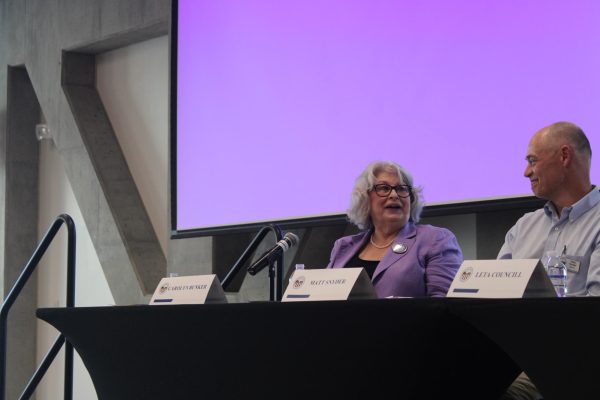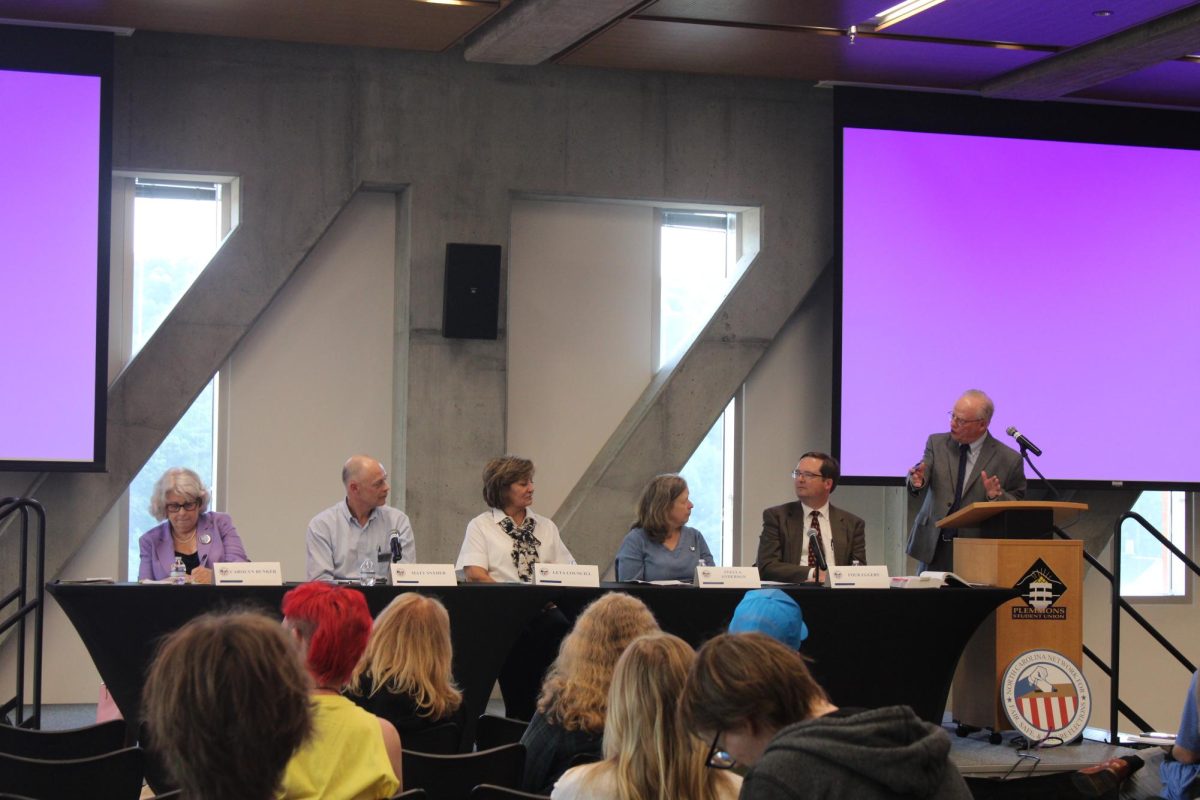A bipartisan group of current and former election officials met on App State’s campus for the North Carolina trusted elections tour Wednesday. The group answered questions about election processes and what they do to ensure election security.
About 30 students and community members watched as Bob Orr, former associate justice of the North Carolina Supreme Court, and Jennifer Roberts, former mayor of Charlotte, hosted the panel.
The panelists started by explaining the makeup of the board of elections. They said the State Board of Elections holds an administrative role over each county board of elections in North Carolina. Each county board then administers the election process in each county, which involves recruiting poll workers, designating precincts and handling all ballots for the county.
“I typically tell folks they’re the ones who actually do the real work, because at the state level, we don’t touch or handle a single ballot,” said Four Eggers, a member of the North Carolina State Board of Elections.
Members of the panel also spoke about measures to ensure election security.
Matthew Snyder, the elections director for the Watauga County Board of Elections, explained the process of verification between multiple documents to ensure an accurate ballot count.
Snyder said multiple forms of documentation are used to ensure accurate ballot counts. He said the county board of elections uses computer records at individual precincts, forms each voter signs when they go to vote and the count of ballots to verify accurate ballot counts.
“We’re constantly checking to make sure those things match and, if there’s a discrepancy, why that may be,” Snyder said.
The panel also mentioned counties keep paper records for each individual voter that are verified in the process of certifying election results.
“There’s a hand-eye audit at the end of the whole process, and when that doesn’t match, that’s going to set off alarms and red flags,” Snyder said.

The panel went on to explain the process of certifying election results. Counties are required to certify election results 10 days after Election Day unless there is a legal challenge that would change the final vote count. Part of that process, Snyder said, is to make sure vote totals in the individual counties match voter records held by the state.
Snyder said more than four differences between vote totals and voter records held by the state requires an explanation from county elections officials.
“It’s unbelievable how accurate our elections are and how little is accepted if you’re off, so that’s what people should take confidence in,” Snyder said.
The panel also discussed different processes in an election for voters to know. One thing the panel addressed was the registration process for students at App State who are originally from out of state.
Stella Anderson, a panelist and former member of the North Carolina State Board of Elections, said students from outside the state can claim their residency in North Carolina.
“The voter gets to declare where they reside and their intent to reside there for the foreseeable future,” Anderson said.
The panelists also explained the process for provisional ballots in North Carolina. Provisional ballots are used by voters when there is no record of their registration in the precinct where they attempt to vote.
Snyder explained that provisional ballots are not initially included in the Election Day totals because election officials must first research the voter’s eligibility.
“All votes will be added to the totals before the election is finalized,” Snyder said.
In addition to the information on election processes and election security, panelists spoke about the needs of county election boards across North Carolina.
Snyder said the County Board of Elections is currently in the process of hiring workers at precincts for early voting and Election Day.
“We have a limited non-student population in a couple of our precincts and it’s really important we get student participation,” Snyder said.
County elections are funded by the counties they take place in. Snyder said counties often struggle with resources to fund the work on elections.
“In North Carolina and across the United States election funding, I would give it a D as far as a grade,” Snyder said.
On Sept. 19, the Watauga County Board of Elections will hold an election equipment test event. The event is open to the public and will test the ballot counting equipment before it is used for early voting.
“We’re not perfect, we make mistakes but by being open to the public we’ll show you that ‘Hey, there are fixes for just about everything we do if there’s a mistake,’” Snyder said.



